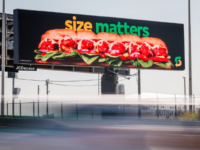A recent Federal Court decision regarding the rights of casual workers in the mining industry could have implications for the retail sector, according to the National Retail Association, which says it opens a “can of worms”.
The Federal Court ruled that a casual truck driver employed by recruitment agency WorkPac was entitled to back pay for benefits such as annual leave because they had worked regular shifts for an extended period, despite being paid casual loading.
“Allowing casual employees to ‘double dip’ – whereby they receive higher wages while also accessing entitlements such as annual leave – has the potential to financially cripple many small businesses across several sectors,” NRA deputy chief executive Lindsay Carroll said.
“This is particularly true of some areas of the retail sector, such as fast food, which rely heavily on casual workers in periods of high customer demand.”
Carroll went on to push for the federal government to “close the loophole” to stop such issues arising in other industries, urging federal minister Kelly O’Dwyer and Opposition Leader Bill Shorten to back Australia’s small business community.
“Should the WorkPac precedent be extended to other industries, it would result in many mum-and-dad small businesses going down the plughole, along with thousands of jobs,” Carroll said.
Increased penalty rates to increase pressure on small businesses
The Fair Work Commission recently decided that casual workers will see higher penalty rates on Saturdays and weeknights as of November 1 – just in time for the busiest retail period of the year.
The Shop, Distributive and Allied Employees Association (SDA) national secretary Gerard Dwyer welcomed the decision, heralding it as a major win that would benefit hundreds of thousands of retail workers.
“This will result in significant pay increases for over 350,000 hard-working retail employees on the [Retail] Award and will have important flow effects for employees on enterprise bargaining agreements right across Australia’s retail sector,” Dwyer said.
However, the NRA slammed the decision to “slug Australia’s embattled retailers” with a wage hike so close to the busiest trade period of the year.
“At the moment, the money simply isn’t there to be asking small business owners to fork out more cash on wages,” NRA chief executive Dominique Lamb said.
With increased penalty rates, and the potential of claiming annual leave benefits as well, the cost of employing casual workers looks set to rise dramatically in the coming months.
This article first appeared on Inside Retail, a sibling publication to Inside Franchise Business.











